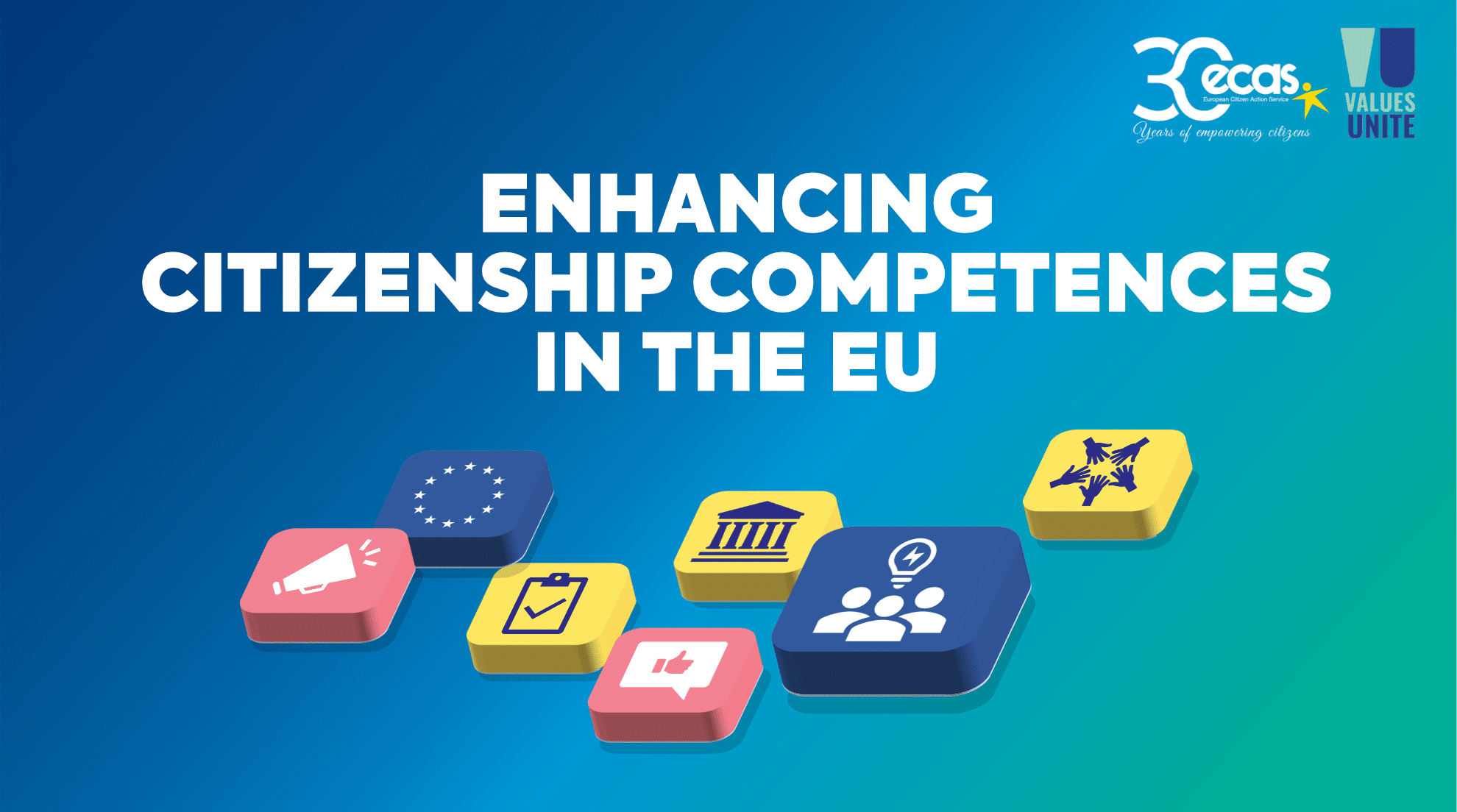
We hosted policy makers as well as civil society representatives and researchers. The takeaways from these initial debates are of great value and will feed in ECAS’ future position on the matter. Five main points, shared during the conference, are explained below. The whole conference report can be accessed here.
Not starting from scratch
With no doubt, there are a important challenges waiting for us in this field. Still, the good news is that there is already a great treasure of activities around European citizenship education. As Ms Chrstiphoidou says , “we have the wind in our sails”. And in fact: the European Commission provides programs, platforms and mechanisms to support citizenship education already today. Those initiatives serve a great deal to enhance citizenship competences in the EU. Yet, more is to be done and further action is possible.
European curriculum for civic education
A key element of the discussion was on a possible joint European curriculum on citizenship education. As it was presented by Mr Ruiz Devesa, the European Commission could facilitate the process of writing such curriculum. This, however, must be done inclusively, by bringing together a diverse group of national experts. Crucially, it is not mandatory to be adopted by Member States but would constitute an invitation to national legislators. This approach comes with two main advantages: Firstly, it would bypass the limited competences of the EU in the field of education. Secondly, it could not be seen as “imposed by Brussels”, given that it has to be applied by Member States.
Bottom up & top down
Another main takeaway from the event was that civic education in the EU cannot be implemented exclusively with a top-down approach, nor bottom up. It is necessary to find the right balance between local particularities and European coherence. This also counts for the interpretation of European values. While (as advocated by Mr Vincze), the values in Art. 2 of the Treaties might need further specification, citizens must own the values themselves. Ultimately, they are the ones putting them into daily practice.
Knowledge sharing is key
Building up on the fact that the EU is already active in the field of citizenship competences, it is important to “connect the dots”, as Mr Markovic said. If one project or one program creates a great output, others have to be able to learn from it. An infrastructure that allows structured and accessible knowledge sharing is key here. A possible European platform or agency for citizenship education could play an important role.
Equalities of funding must be ensured
The final main takeaway from the discussion is the fact that inequalities in Europe (when it comes to access to citizenship education) must be diminished. As Ms Zels noted “we need equality when it comes to opportunities to education and especially to citizenship education”. Currently, some countries provide very different levels of funding to projects on civic education. This is not sustainable if we strive for strong and empowered citizens all over the EU.
ECAS is proud of having hosted this exchange and is looking forward to keeping the conversation alive in Brussels and beyond. Bringing together thought leaders, as well as policy makers and researchers is key. It is an important step to strengthen citizens’ rights and capacities to become active democrats.